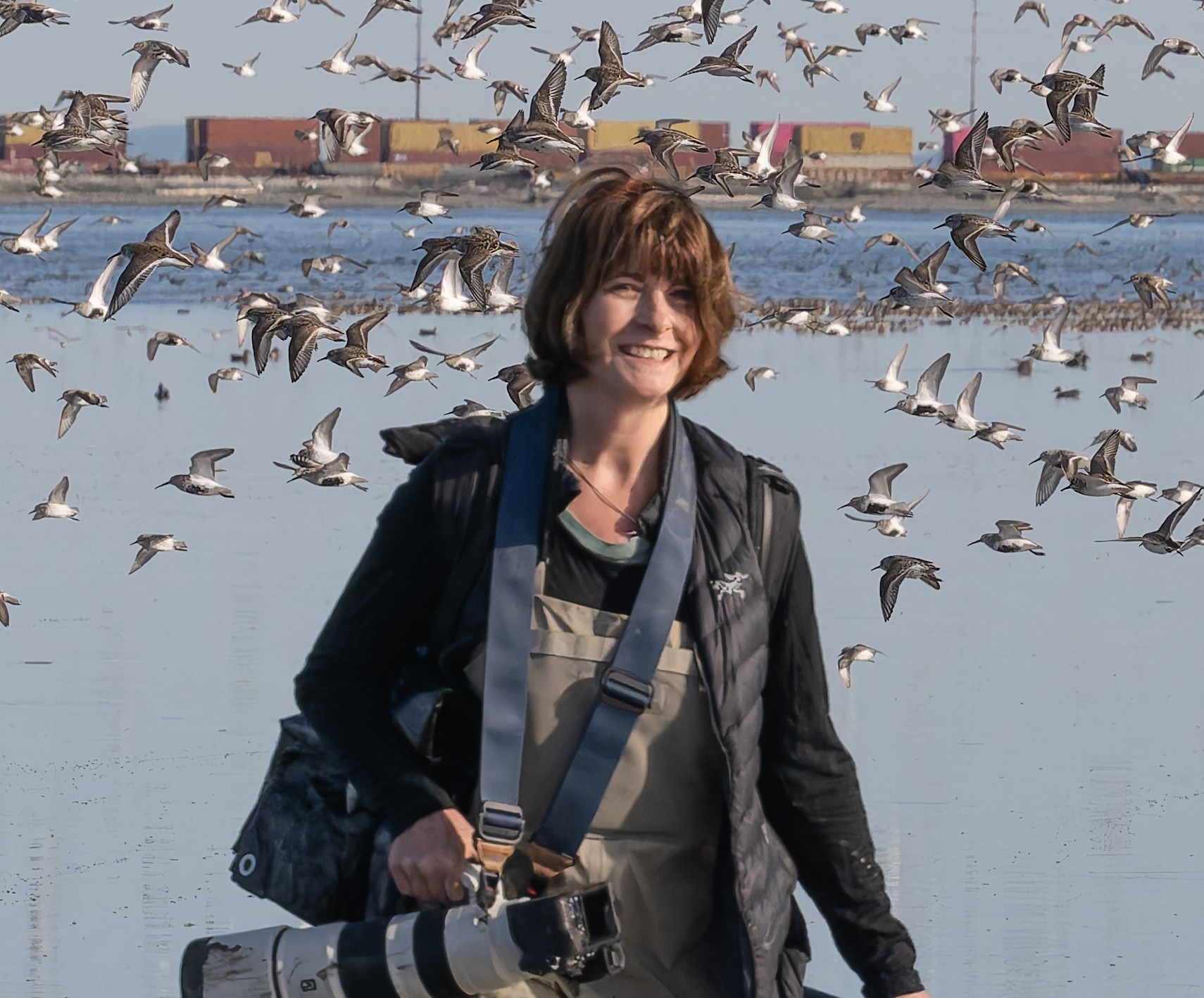CREATIVE TEAM
Isabelle Groc is a writer, conservation photographer, and documentary filmmaker, with a passion for creating stories that increase our understanding and awareness of the natural world. Isabelle has earned master degrees in Journalism from Columbia University and Urban Planning from the Massachusetts Institute of Technology and brings a unique perspective in documenting the impacts of human activities on threatened species and habitats. Isabelle has written and directed over a dozen nature films. Isabelle’s documentary Toad People, has won a Wildscreen Impact Panda Award. Her latest feature, Part of the Pack was nominated for five Leo Awards and is currently streaming on Knowledge Network. Isabelle has a special connection to the shorebirds of Roberts Bank and has been visiting the spring migration for the last 15 years. A fellow of the Explorers Club and the Royal Geographical Societies of Canada, Isabelle grew up in France and now lives in Vancouver.
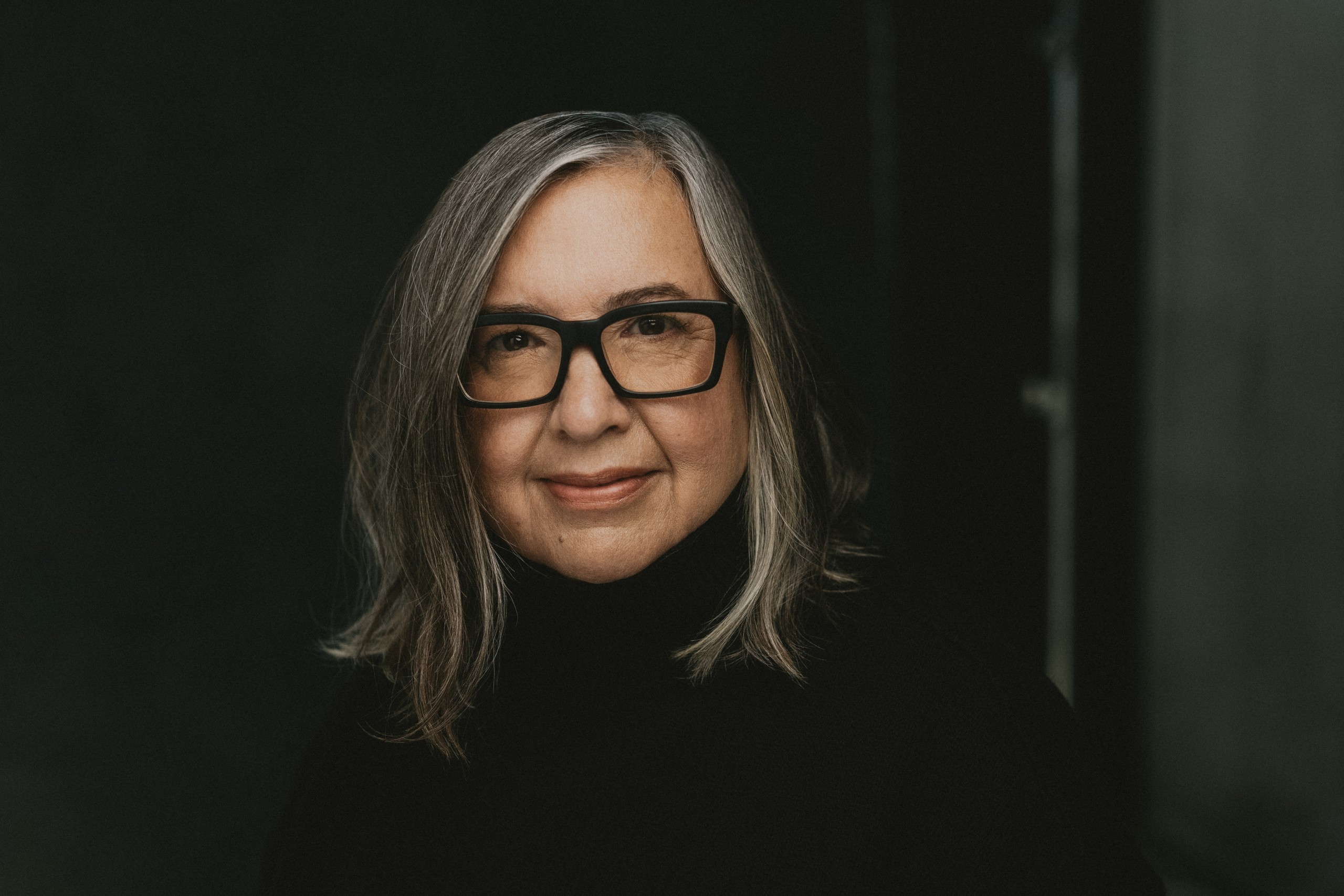
Patti Poskitt
Producer
With over 40 years of experience, Patti brings to independent producers, directors and broadcasters the security of complete financing and management for their projects. She joined the faculty at the Capilano University’s School of Motion Picture Arts as an instructor for Independent Line Producing and Production Management in 2016 and laid the foundations for the producing stream of four related courses to better serve student choice and address the needs of the ever- expanding film and television entertainment industry. Second Son Productions Inc., Patti’s company, oversees all aspects of financing, development, production, post and delivery of the final project.
Patti’s role focuses on the creative financial supervision of production for the participating broadcasters and stakeholders as well as the critical selection and management of crew. Patti manages production scheduling, business affairs and bank financing. Other services include budget management, production cost reporting, and film tax credit and funding applications and production audit preparation.
Patti has extensive experience in all aspects of production. A graduate of Capilano College’s rigorous Media Program, she has worked her way through the ranks in production coordination, management and all forms of producer titles. Stints in daytime television have provided Patti with strong connections to countless resources. She has numerous credits in all genres of programming, but prefers to focus on award winning one-off documentaries doc series and music specials and independent feature films.
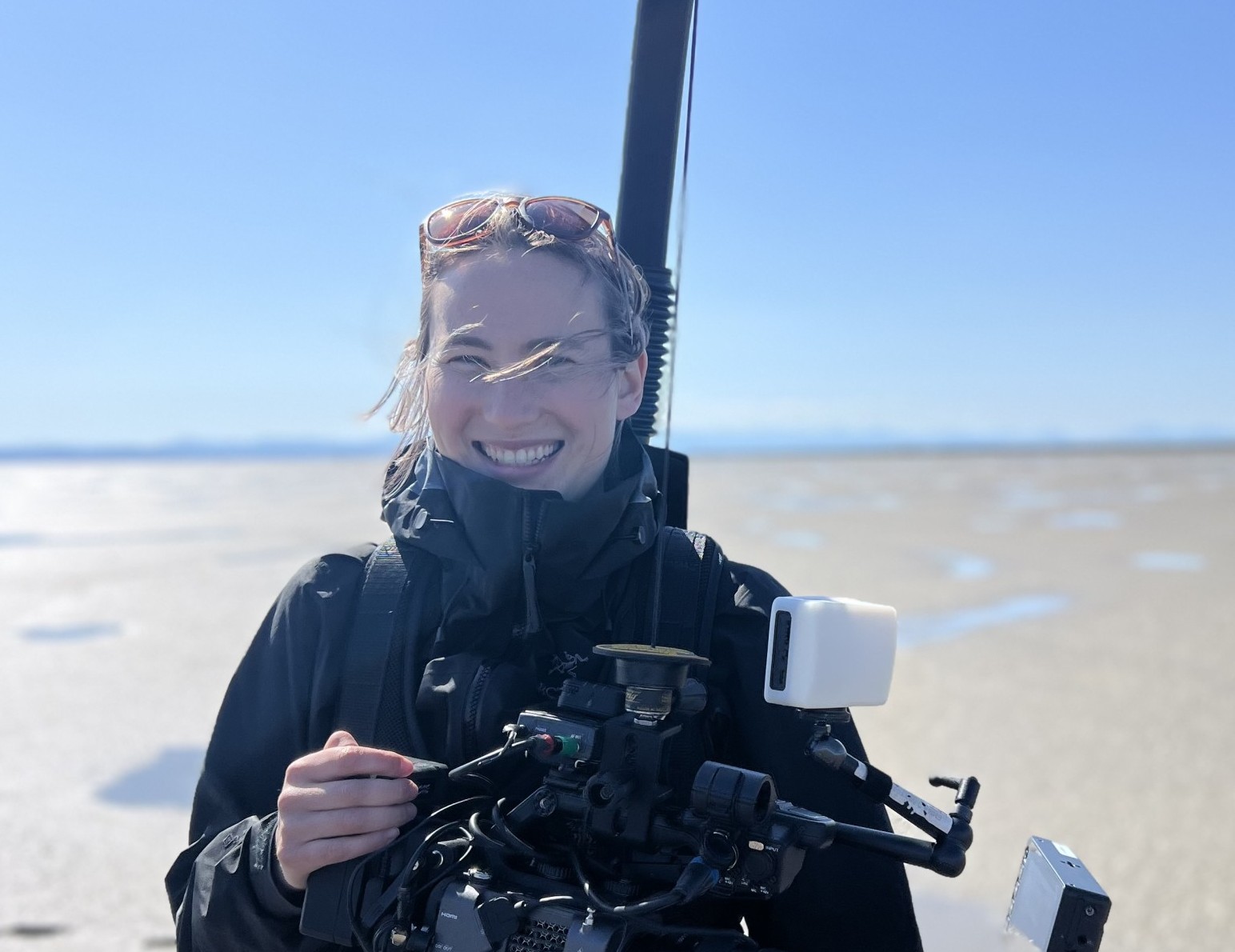
Emma Djwa
Director of Photography
Emma, a Vancouver-based DP, brings a combination of clarity and beauty to screens worldwide. Her work has been showcased at the Toronto and New York International Women Film Festivals, and the Miami Film Awards. Emma is an Associate member of the Canadian Society of Cinematographers and an Operator with ICG 669. With a passion for authentic storytelling, she crafts grounded narratives and imaginative documentaries. Holding a Bachelor’s in Motion Picture Arts from Capilano University, Emma was raised on and lives on the unceded territory of the Coast Salish peoples–Sḵwx̱wú7mesh, Stó:lō, Səl̓ílwətaʔ/Selilwitulh, and xʷməθkʷəy̓əm Nations.
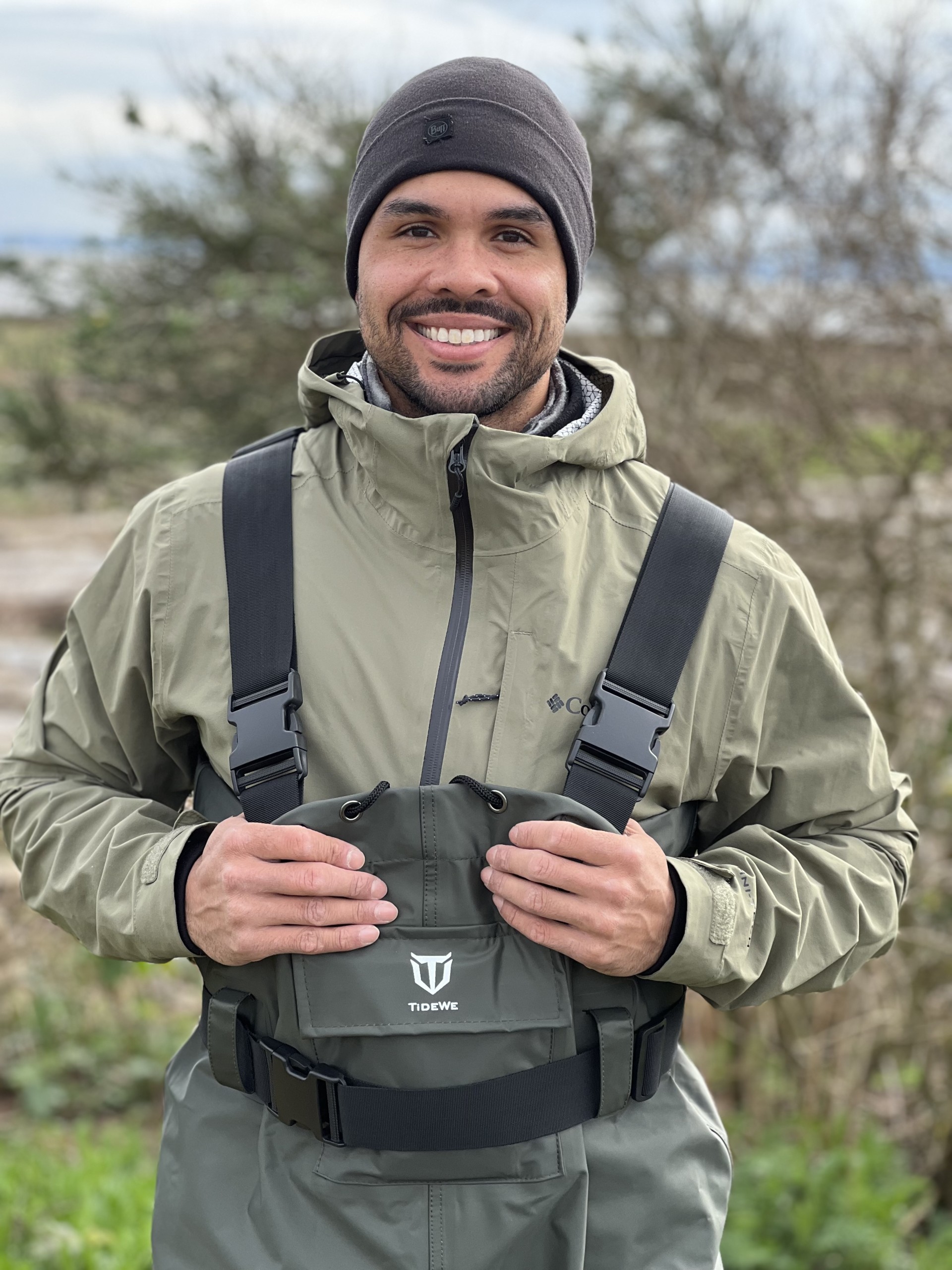
Ryan Wilkes
Cinematographer
Ryan is a multi-talented storyteller whose passion for science, adventure and wildlife is reflected in his work as a cinematographer, director and photographer. He captures the delicate balance between humans and the natural world, showcasing the beauty and mystery of our planet.
His diverse background, which includes a PhD in Bioengineering and experience as a materials scientist, gives him a unique perspective when it comes to communicating complex scientific topics in an accessible and engaging way.
Ryan’s cinematography can be seen in multiple documentaries currently in production with major networks including CBC, PBS, ARTE, and renowned factual producer, HHMI Tangled Bank Studios. He has received several awards for his independent short documentaries and is an alumnus of the Jackson Wild Media Lab and the Being Black in Canada filmmaking program.
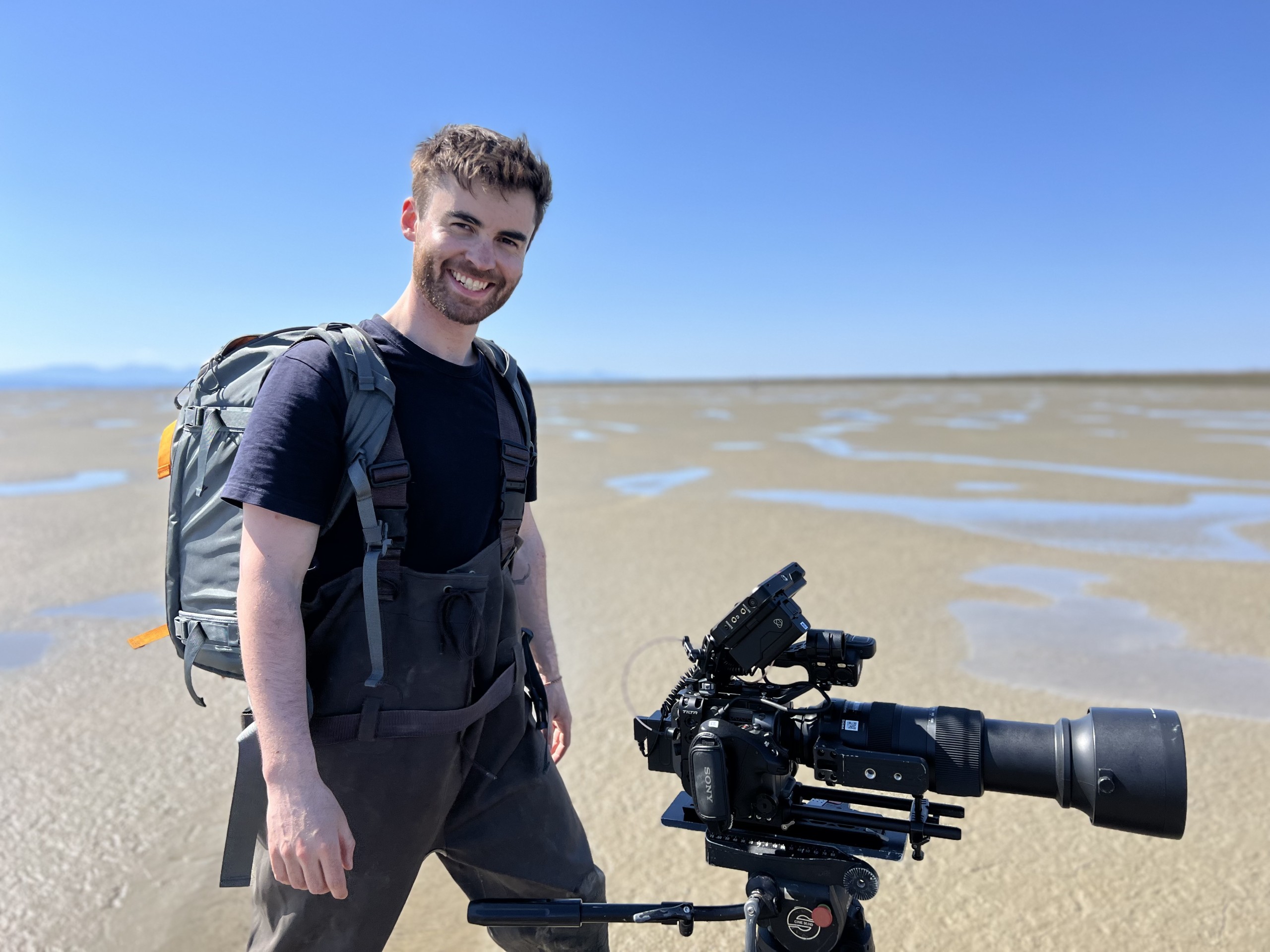
Jasper Sassaman
Cinematographer
Jasper is a cinematographer based in Vancouver, whose work primarily spans commercials, documentaries, natural history, narratives, and music videos.
After graduating from film school on the Sunshine Coast, Jasper became very passionate about storytelling and fell in love with the cinematography art form. Along with his team, he has gone on to film award winning short form docs, feature docs, and narratives. Jasper values his relationships with the people he is working with over anything else and has proven himself to be an effective and efficient leader as a Director Of Photography on larger film set environments. Growing up in the small ski town of Nelson, BC gave Jasper a strong drive to explore the beauty that Canada is famous for. Jasper is an avid rock climber, mountain biker, surfer, snowboarder, and environmentalist, and loves to incorporate these passions into his work.
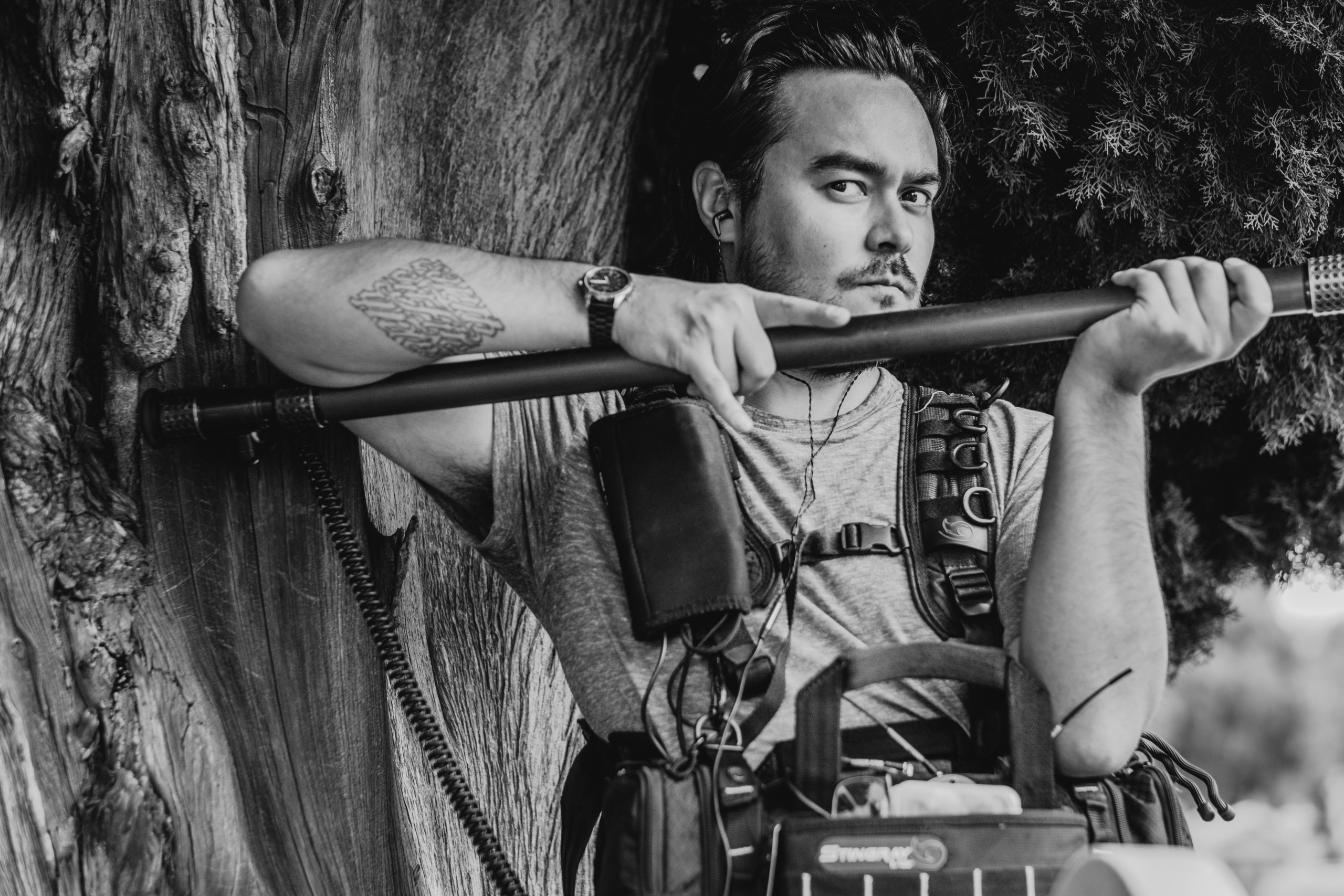
Ramsay Bourquin
Sound recordist
Ramsay is a multi award-winning location sound mixer with a background in photography and cinematography. Hailing from the Tahltan Nation in Northern British Columbia, Ramsay currently resides in Vancouver, with his wife and two kids.
During his 10+ years working in the film industry he has focused mainly on helping tell cultural and environmental stories from people on the land and in the front lines of change and conflict. His sound career has taken him across the globe mixing for television series, documentaries and commercials. His versatility allows him to bring the best of sound recording to the most remote of spaces. From the rainforests of the Amazon to the beaches of Ibiza to castles in the United Kingdom Ramsay has truly captured sounds from around the world. Ramsay has worked on projects for APTN, the National Film Board, HBO, The Knowledge Network, CBC, the BBC and more.
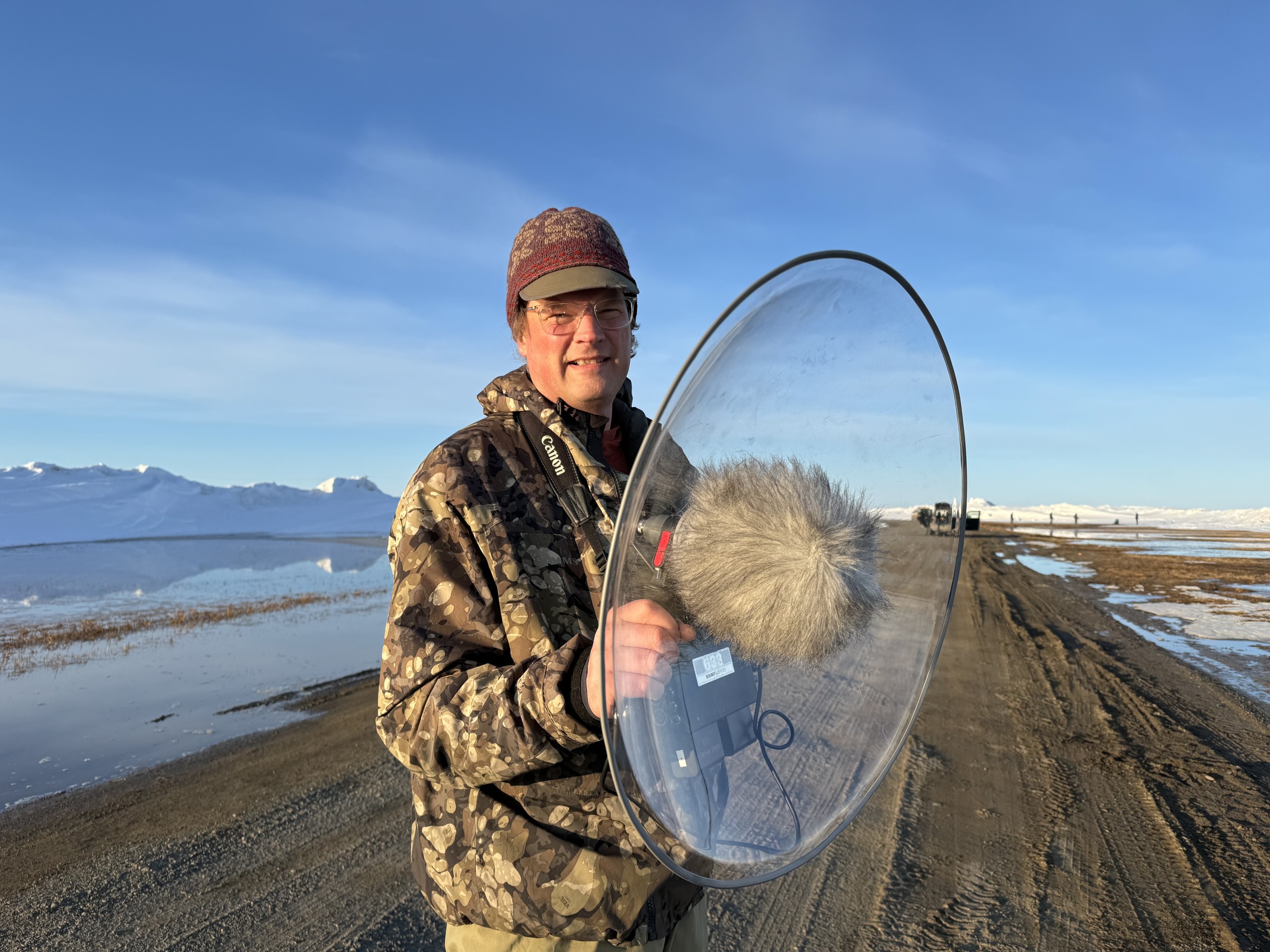
Ryan Peterson
Cinematographer and sound recordist (Alaska)
Ryan is a lifelong Alaskan with interest in place-based documentary storytelling in the North, and the ways in which people live both beneficially and in conflict with ecosystems. His work often has something to do with biology, climate science, Indigenous and subsistence cultures, commercial fishing, energy production, or food security.
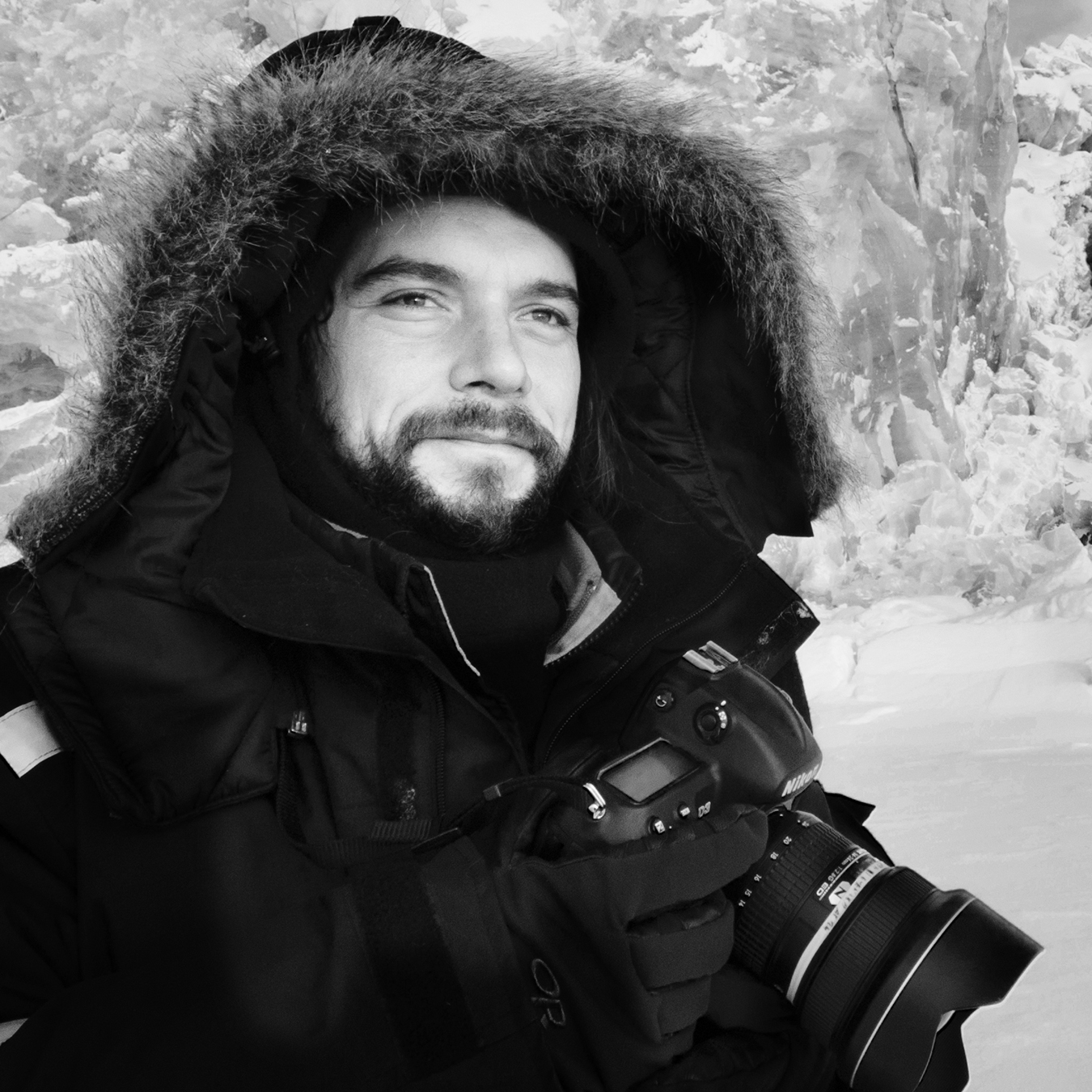
Florian Schulz
Technical advisor (Alaska)
Florian has dedicated his life to documenting some of the world’s last great wild places. Specializing in wildlife photography and wildlife film, he strives to capture an in-depth look at entire ecosystems. His work has sparked and supported comprehensive conservation campaigns on the Arctic and the Freedom to Roam movement on wildlife corridors, with the mission to protect some of the last great wilderness areas.
The quality of his work is reflected in the widespread recognition he has received. His photography and film work has been broadly published from magazines like National Geographic to TV and streaming platforms of the likes of Netflix, NatGeo and BBC in their most prestigious shows like Planet Earth III, Frozen Planet II or Our Universe . His awards range from “Environmental Photographer of the Year” to “Best Film” from the Giant Screen Academy for his recent IMAX film “The Arctic: Our Last Great Wilderness”. His tireless efforts to document and protect wilderness areas are fueled by an honest commitment to our environment and a love for the natural world.
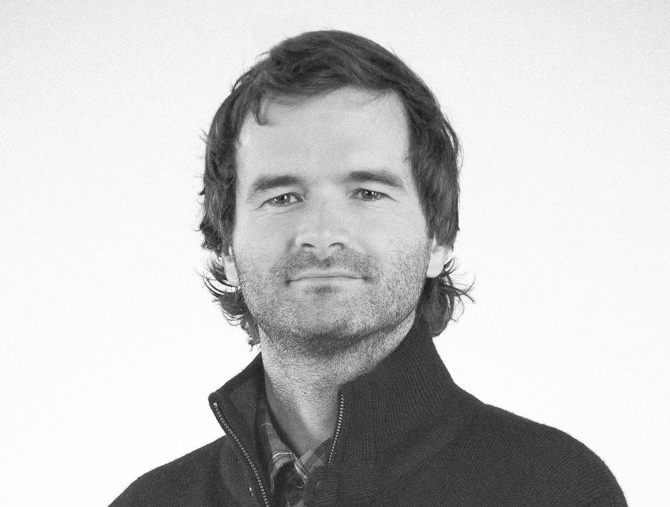
George Brian Faulkner
Production Manager
As a freelance producer, editor, videographer, motion graphics editor and post production supervisor, George Faulkner has been working with directors and producers since 2001. He has collaborated with Greenpeace Canada, the National Film Board of Canada, the Nature Trust of BC, the Wilderness Committee, the Vancouver International Jazz Festival, and National Geographic. His skill set includes video editing, motion graphics, cinematography, production and post-production supervision. He has art of several Leo Award nominated documentaries.
Well before video editing, George was avidly involved in writing music, photography and skateboarding. Naturally his career has spawned from a culmination of his artistic interests.

Christopher Tyler Nickel
Composer
With his music being heard in over 160 countries, award-winning composer Christopher Tyler Nickel has composed a wide range of bold and dramatic music for film, television, the concert hall and theatre. A graduate of the University of British Columbia School of Music with a degree in composition, upon graduation Christopher continued his studies in both New York and Los Angeles.
In the world of film and television music, Christopher has composed music for hundreds of hours of film and television productions for clients that include the Discovery Channel, Corus, SyFy, Hallmark, Alliance Atlantis Television, YTV, Lifetime, the National Film Board of Canada, National Geographic, Teletoon, Cinetel, HGTV, Telefilm Canada, W-Network, Animal Planet, TLC, and the History Channel.
Christopher has been honoured with five SOCAN Awards, the 2004 Gold Medal for Best Action Score at the Park City Film Music Festival, the 2002 Golden Key International Performing Arts Award for Musical Composition, two Western Canadian Music Award nominations for his concert recordings, and fourteen Leo Award nominations and two wins for his music for film and television.
CAST
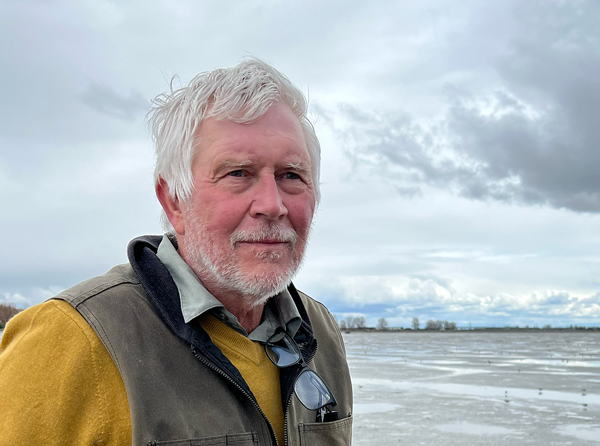
Bob Elner
Born and educated in the United Kingdom, Bob migrated to Canada in 1977 after being awarded a Ph.D. from the University of Wales for research on the behavioral ecology of crabs and joined the Department of Fisheries and Oceans (DFO) as a Visiting Postdoctoral Fellow at the St. Andrews Biological Station, New Brunswick. He accepted a Research Scientist position with DFO in 1980 and conducted research into commercial marine invertebrates on both the Atlantic and Pacific coasts for over 10 years before switching from marine ecology to ornithology in 1991. As Research Manager at the Pacific Wildlife Research Centre, Environment and Climate Change Canada (ECCC), Delta, B.C., he was responsible for programs assessing migratory bird populations and devising avian conservation strategies. In the early 2000’s his unorthodox science background led him to discover a totally unknown feeding mode for birds: biofilm grazing, and the role of intertidal biofilm as a major food source for shorebirds. Bob retired from the federal government in 2008 but has continued to pursue research on shorebirds and biofilm, write papers and engage his shorebird expertise in environmental assessments as a Scientist Emeritus with Environment and Climate Change Canada and Adjunct Professor at Simon Fraser University. He was presented the Doris Huestis Speirs Award for outstanding lifetime contributions to Canadian ornithology by the Society of Canadian Ornithologists in 2018.
The film follows Bob’s three-decade long scientific quest that seeks to reveal the secrets behind the long-distance migration of a bird that weighs only about 30 grams.
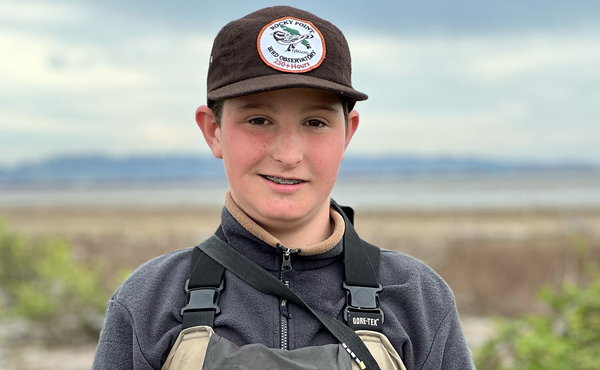
Adam Ross
Adam Ross is a 14-year old birder who has been birding since the age of 6. He has a specific interest in shorebirds, and the film follows his journey as he spots western sandpipers and other shorebirds near where he lives in Victoria, BC, learns about the mudflats of Roberts Bank, experiences the spring and fall migration. Adam shares his insights on what it means to lose the birds and the mudflats habitat and we document his transformative journey of turning his concern into action.
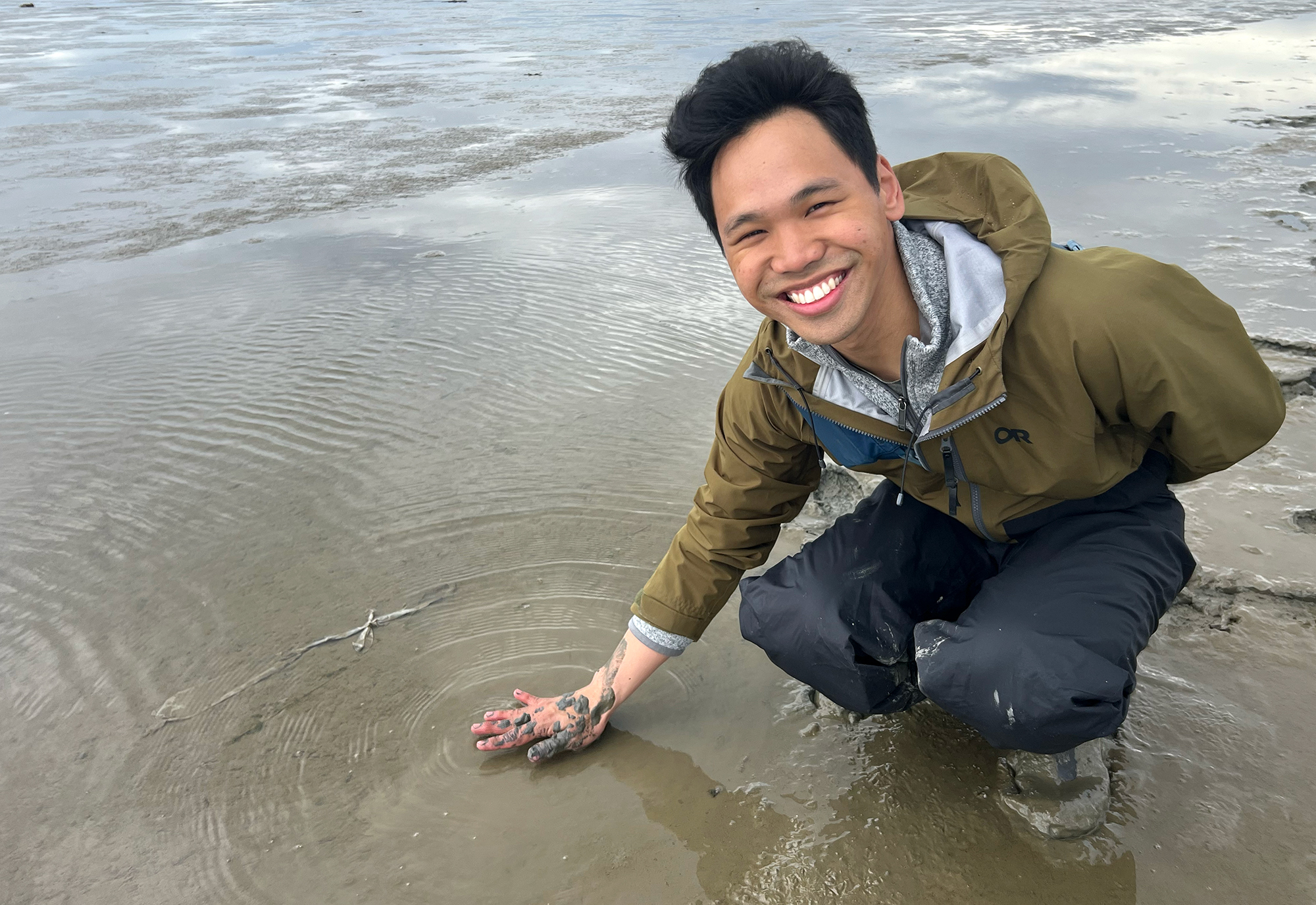
Kris Cu
Kris Cu grew up in the bustling city of Manila, Philippines. Upon moving to Canada, he completed a Biological Sciences degree from Simon Fraser University. As a young naturalist and photographer, Kris has recently discovered the beauty of the mudflats at Roberts Bank. He connects to the environment through photography and is eager to share his passion with others. The film follows his journey as a member of the BIPOC birding community and documents how he engages the local Filipino community in the Vancouver area to connect with birds and the natural world.
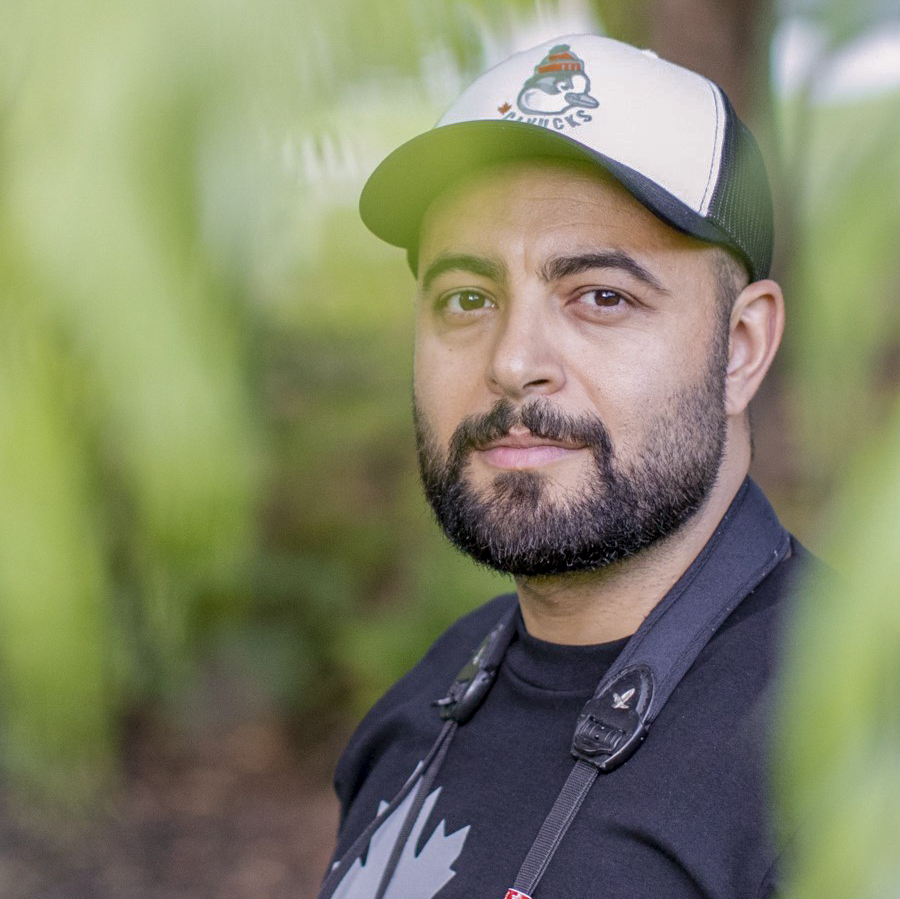
Yousif Attia
Yousif is a birder and a conservationist who was born in Khartoum, Sudan, and immigrated to Alberta as a child. He began studying wildlife, birds and mammals at a young age. This eventually turned into a career as a field biologist that took him all over North America where he interacted with birds in almost every way possible, including a great deal of bird banding. He now lives in Richmond, BC where he remains involved in the birding and naturalists communities, and whenever possible, helps people connect to the natural world. Yousif now works for Birds Canada, where he coordinates volunteer-based bird monitoring surveys such as the Christmas Bird Count.
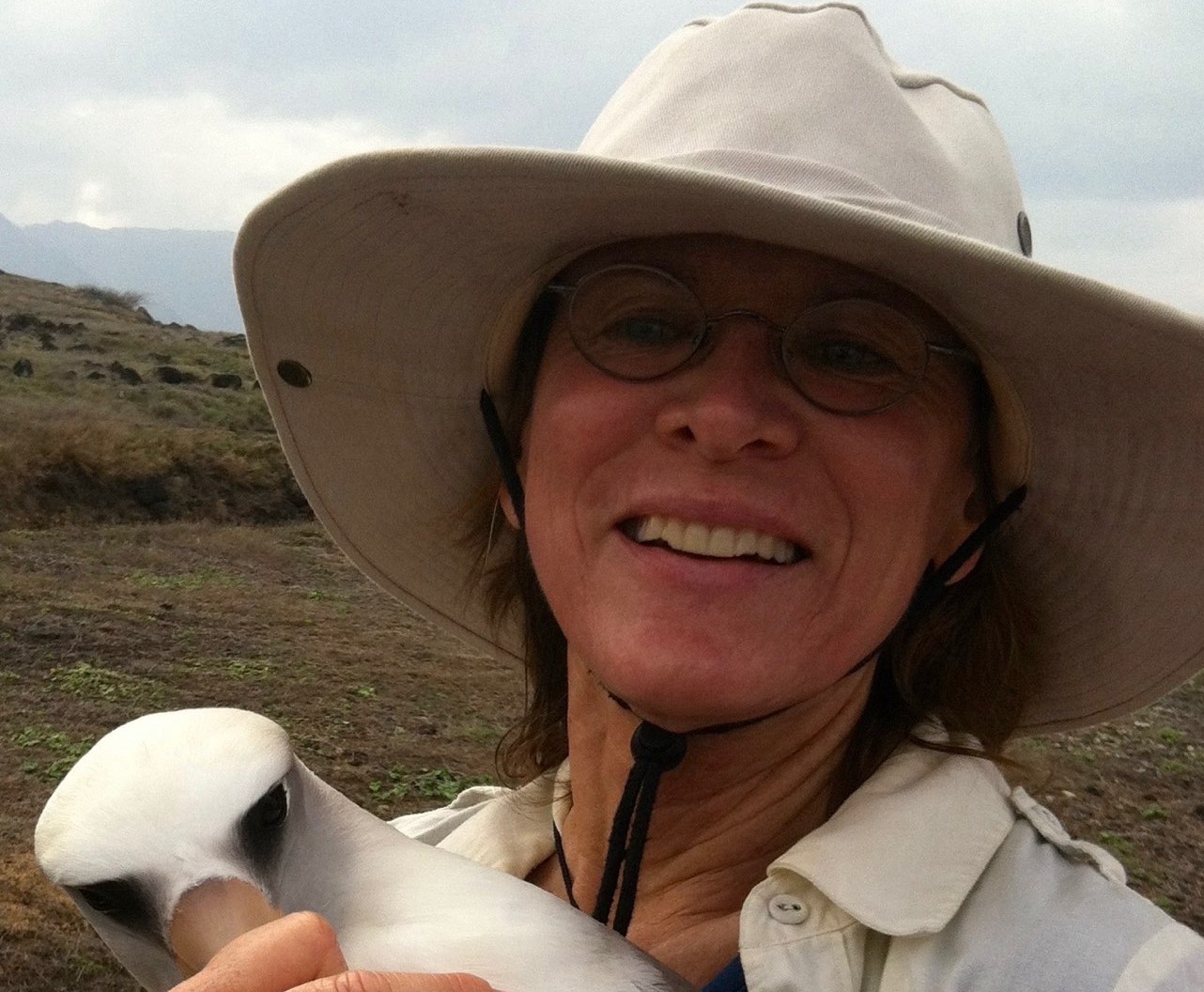
Pat Baird
Pat began her research with the discovery of pattern recognition in lizards followed by the behavioural ecology of coyotes and comparative ecology of two gull species. As a USFWS/USGS researcher, she surveyed the northeast Gulf of Alaska, the Bering, Chukchi, and east Siberian Seas for abundance and distribution of seabirds, and later headed up a research group that studied the foraging ecology and breeding biology of nine different species of seabirds in Alaska. After that, Pat completed post-docs in Washington (on Magellanic penguins in Argentina), and in California (on bald eagles and ospreys) before becoming a professor and researcher in the Biology Department at California State University where she developed a research program on the breeding biology and foraging ecology of the endangered California least tern.
Pat Baird
During this time she noted the alarming decrease in population numbers of many shorebirds, and designed a program to determine the current migration path of the western sandpiper as a model with the help of Ron Ydenberg at Simon Fraser University. Pat, her students and collaborators from Panama, Mexico, Canada, and the USA, attached radios to sandpipers over four years, following the birds up the coasts of Panama, Mexico, and California in a small plane, and listening for them in Oregon, Washington, Alaska, and Roberts Bank in British Columbia.
This study raised many questions about why shorebirds stopped in some areas and not in others, and so Pat pivoted to studying the marine food web at the last staging area of the western sandpipers in BC — Roberts Bank — before their long hop to breeding grounds in Alaska. This is where she joined Bob Elner and they discovered the importance of diatoms, their unique production of omega-3 fatty acids, and how critical this micronutrient was not just for shorebirds, but for the entire marine food web in estuaries and in the Arctic. Pat’s research continues to focus on diatoms’ production of omega-3 fatty acids, and how the quantity of omega-3 can positively or negatively affect reproduction and growth of all members of the marine food web. She has ongoing collaborations with researchers in Canada and the United States on omega-3 fatty acids.
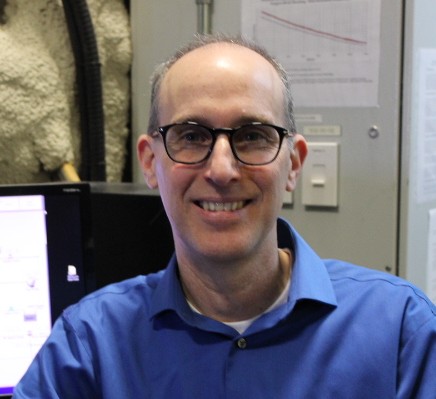
Chris Guglielmo
Chris is a Professor of Biology, and the Director of the Centre for Animals on the Move at Western University. He is also a Co-Director of the Advanced Facility for Avian Research, where he and his students use a unique climatic bird wind tunnel to study endurance flight of wild migratory shorebirds and songbirds under different altitude, temperature, and humidity conditions. He has over 30 years of experience working with migratory birds and bats in the field and laboratory.
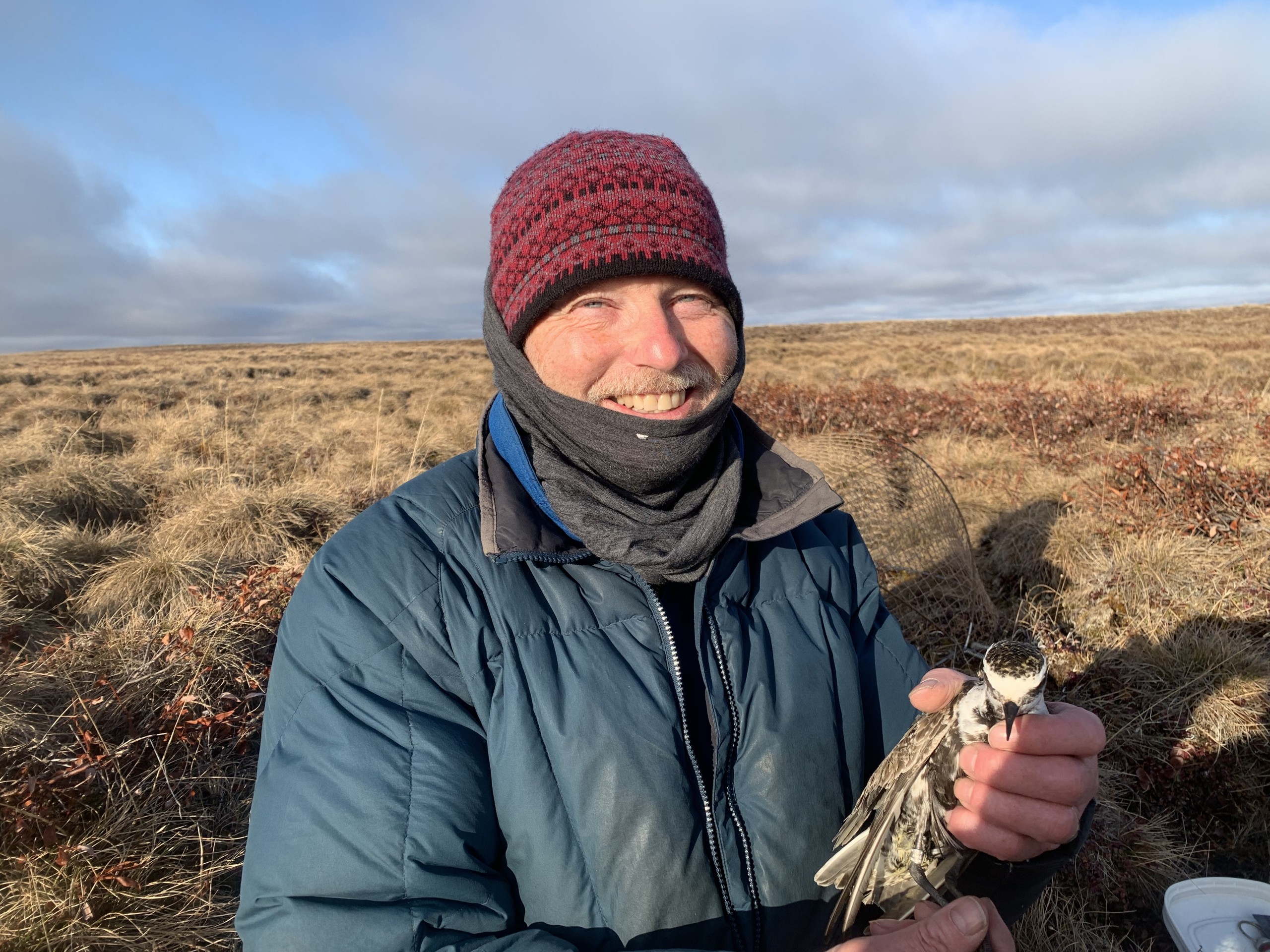
Rick Lanctot
Alaska region shorebird coordinator
Rick’s interest in shorebirds began in 1982 when he first volunteered to work on a behavioural ecology study of Spotted Sandpipers in northern Minnesota. He focused on the breeding ecology and behaviour of individual shorebird species in the 1990s and early 2000s but switched to population demography and conservation in more recent times. His PhD investigated the behavioural ecology of the Buff-breasted Sandpiper – a species he has studied throughout the Western Hemisphere since 1991. He became the Shorebird Coordinator for the Alaska Region of the U.S. Fish and Wildlife Service in 2002, where he coordinates shorebird research and conservation within Alaska and the five flyways that emanate from it. He strongly believes in using science to drive decisions, and as such pushes himself, his students, and colleagues to investigate relevant conservation questions and to publish their findings. He serves as the U.S. representative on the Steering group that coordinates the Arctic Migratory Bird Initiative (part of the Conservation of Arctic Flora and Fauna work group of the Arctic Council), is the Chair of the East Asian-Australasian Flyway Partnership’s Shorebird Working Group, is a lead organizer for the Western Hemisphere Shorebird Group and is the long-term staff member for the Alaska Shorebird Group. Finally, he and Dr. Autumn-Lynn Harrison have recently formed the Shorebird Science and Conservation Collective, which seeks to translate the collective tracking findings of shorebird scientists into effective on-the-ground conservation to help reverse the declines of the Western Hemisphere’s shorebirds.
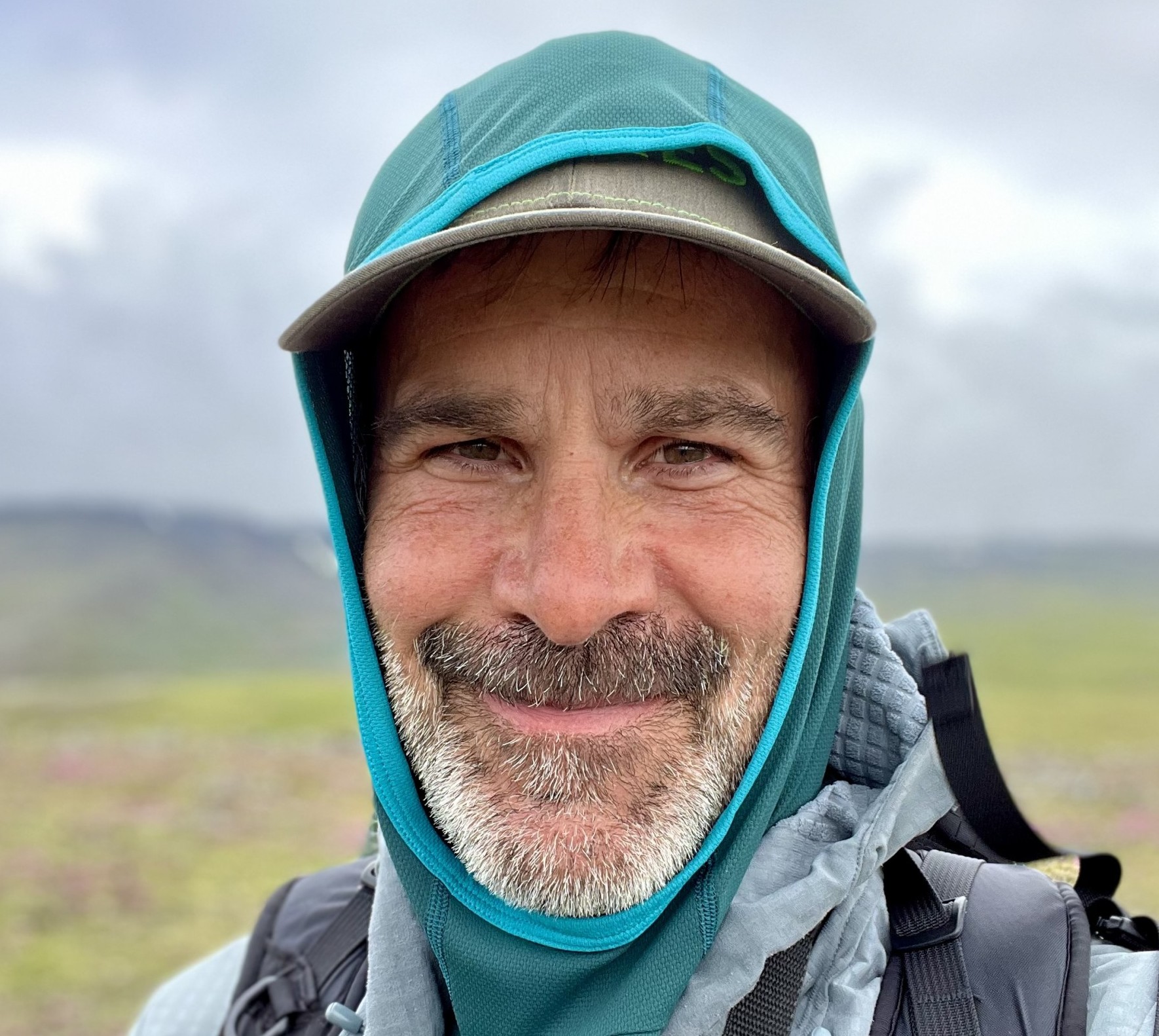
Jim A. Johnson
Wildlife biologist / Alaska landbird coordinator
Jim began his career with Migratory Bird Management in 2000 as a graduate student focused on the breeding bird communities of Southeast Alaska’s major mainland river systems. In 2003, he began a full-time position assisting the MBM’s Shorebird and Landbird programs. Since then, Jim has directed his attention to understanding the breeding and migration ecology of some of North America’s most imperiled species, including the McKay’s Bunting, Gray-headed Chickadee, Olive-sided Flycatcher, Rusty Blackbird, Red Knot, and Lesser Yellowlegs. Jim is also committed to large-scale monitoring programs; he coordinates the Breeding Bird Survey program in Alaska as well as the Alaska Landbird Monitoring Survey program on National Wildlife Refuges and military lands. He is an active participant in Boreal Partners in Flight and Alaska Shorebird Group and helped develop these groups’ conservation plans. Jim’s commitment to applying effective bird conservation measures extends beyond Alaska—he followed two Alaska breeding shorebirds, the Hudsonian Godwit and Whimbrel, to their nonbreeding area on Chiloe Island, Chile, where he and partners initiated a successful conservation program.
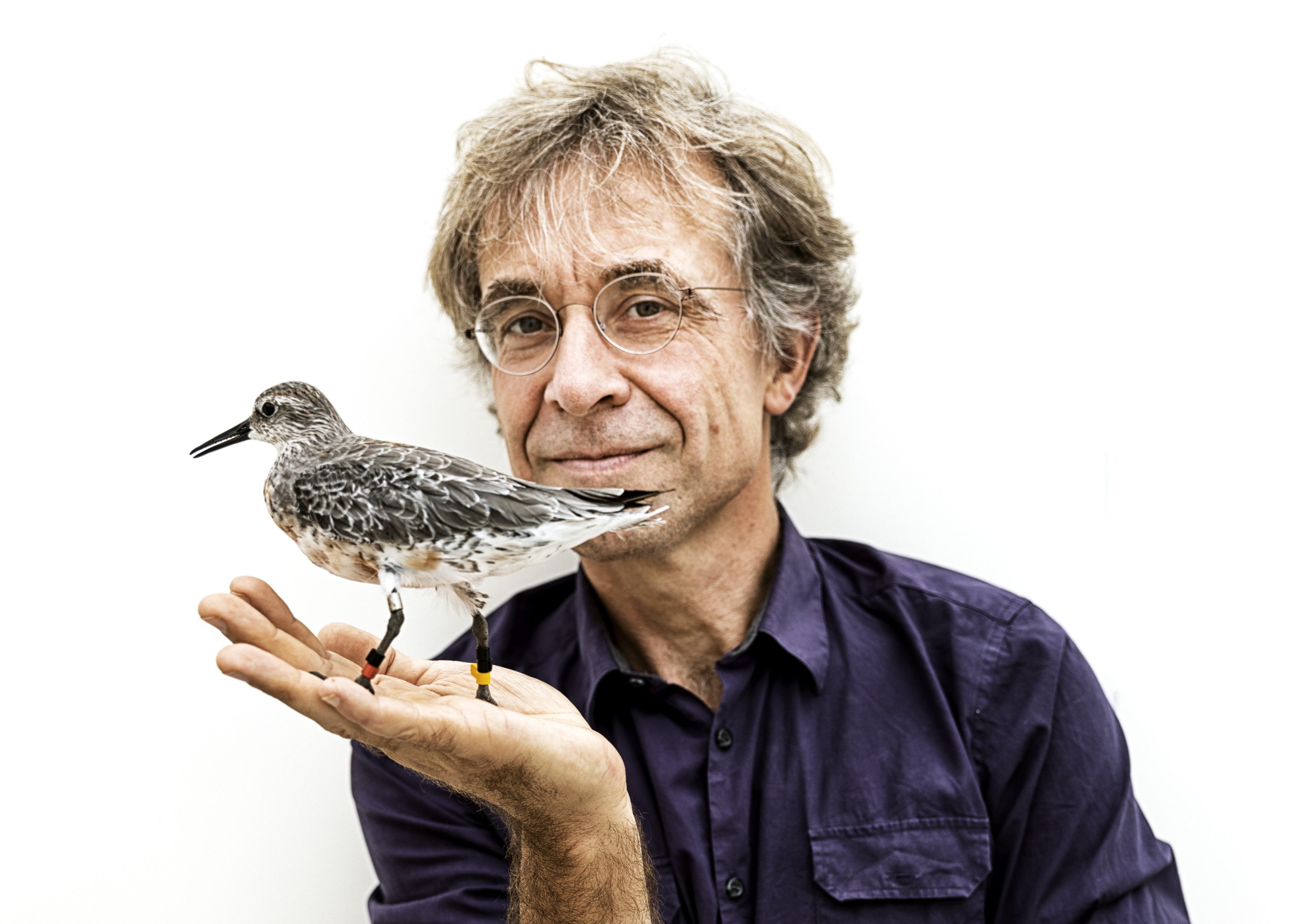
Jan van Gils
Ecologist
Jan is a behavioral ecologist interested in ways how animals cope with changing environments. He is specialized in migratory shorebirds that travel between their (sub)tropical wintering grounds and their Arctic breeding grounds. Much of his current work deals with the consequences of rapid Arctic warming for his study animals. He has shown that these effects can cascade down from the Arctic all the way to the tropics (Science 2016). He is researcher at NIOZ and a professor at the University of Groningen and has published near 100 peer-reviewed papers.
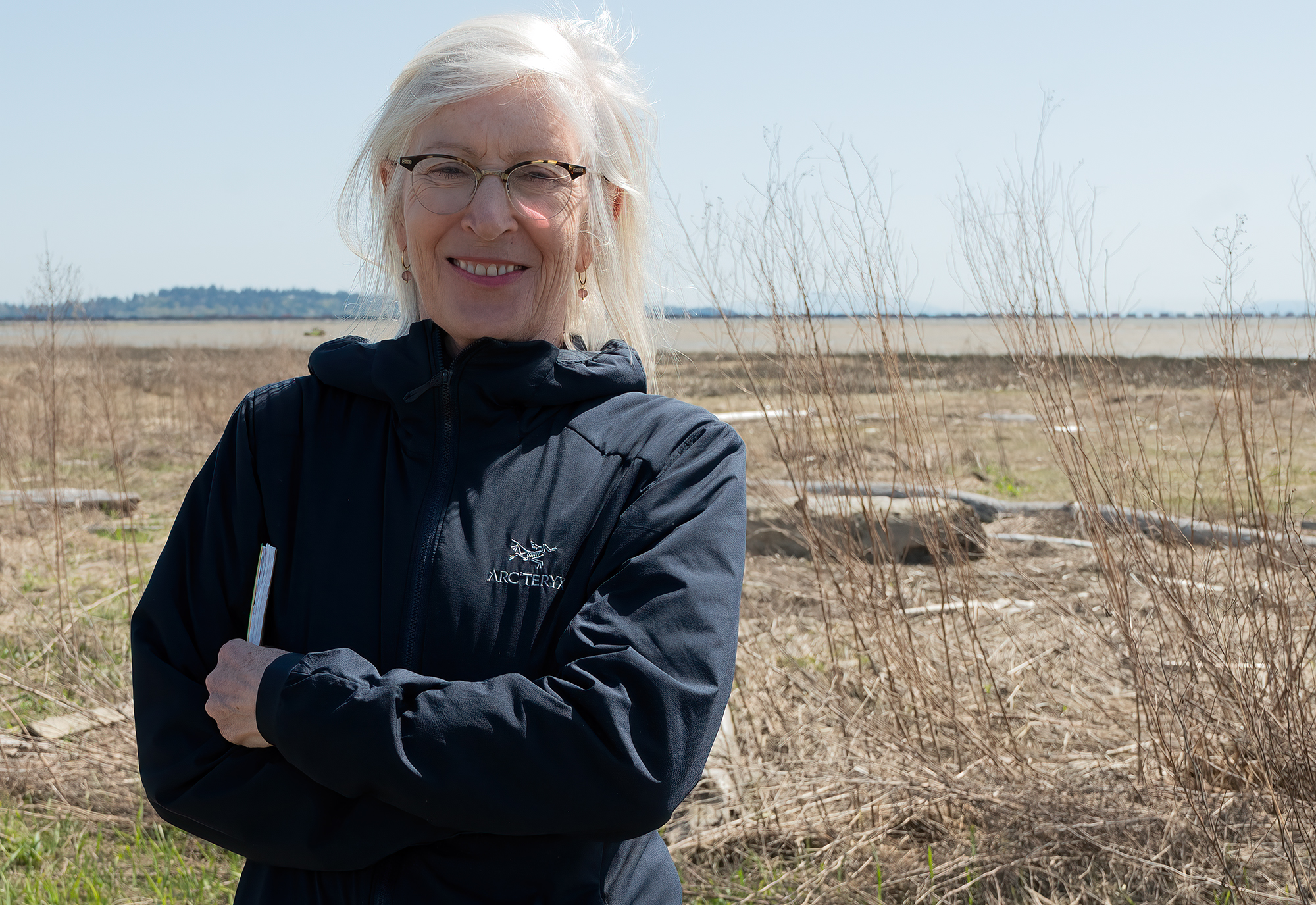
Margaret Munro
Margaret Munro is a Canadian journalist whose stories have appeared in The Globe and Mail, The New York Times, Nature, Canadian Geographic and on news sites across Canada. She has written extensively on threats to wildlife and wild places and the inexorable march toward a warmer world. Her stories on research misconduct at Canadian universities made international headlines as did her work documenting the muzzling of federal scientists by Stephen Harper’s government.Margaret has a passion for birds and is often taking her family on walks and picnics at Roberts Bank. Three decades ago, she took an interest as a journalist in the landscape and has started uncovering the battle to protect the site.
The film follows her inquisitive mind as she shows how the scientific case to protect Roberts Bank from development has been presented to the Canadian government and exposes a decision-making process that masks science and values economic development over biodiversity.
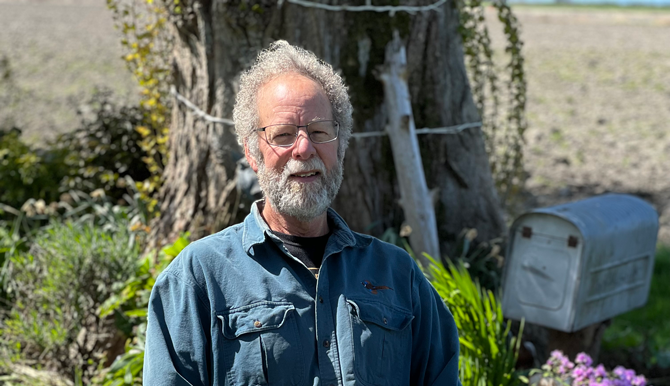
Bruce Cuthbert
Bruce Cuthbert lives at Canoe Pass near Ladner, BC. He is part of a family which has farmed at Brunswick Point for six generations. His great grandfather, Paul Swenson, came from Sweden to settle at Brunswick Point in 1885. Bruce and his wife Kerry live on the Swenson family farm. Bruce’s four children were raised at the farm. At 66 years old, he still enjoys teaching his grandchildren the values of respecting nature and about the heritage of the Swenson farm which borders on the southernmost arm of the Fraser River and the Strait of Georgia.

